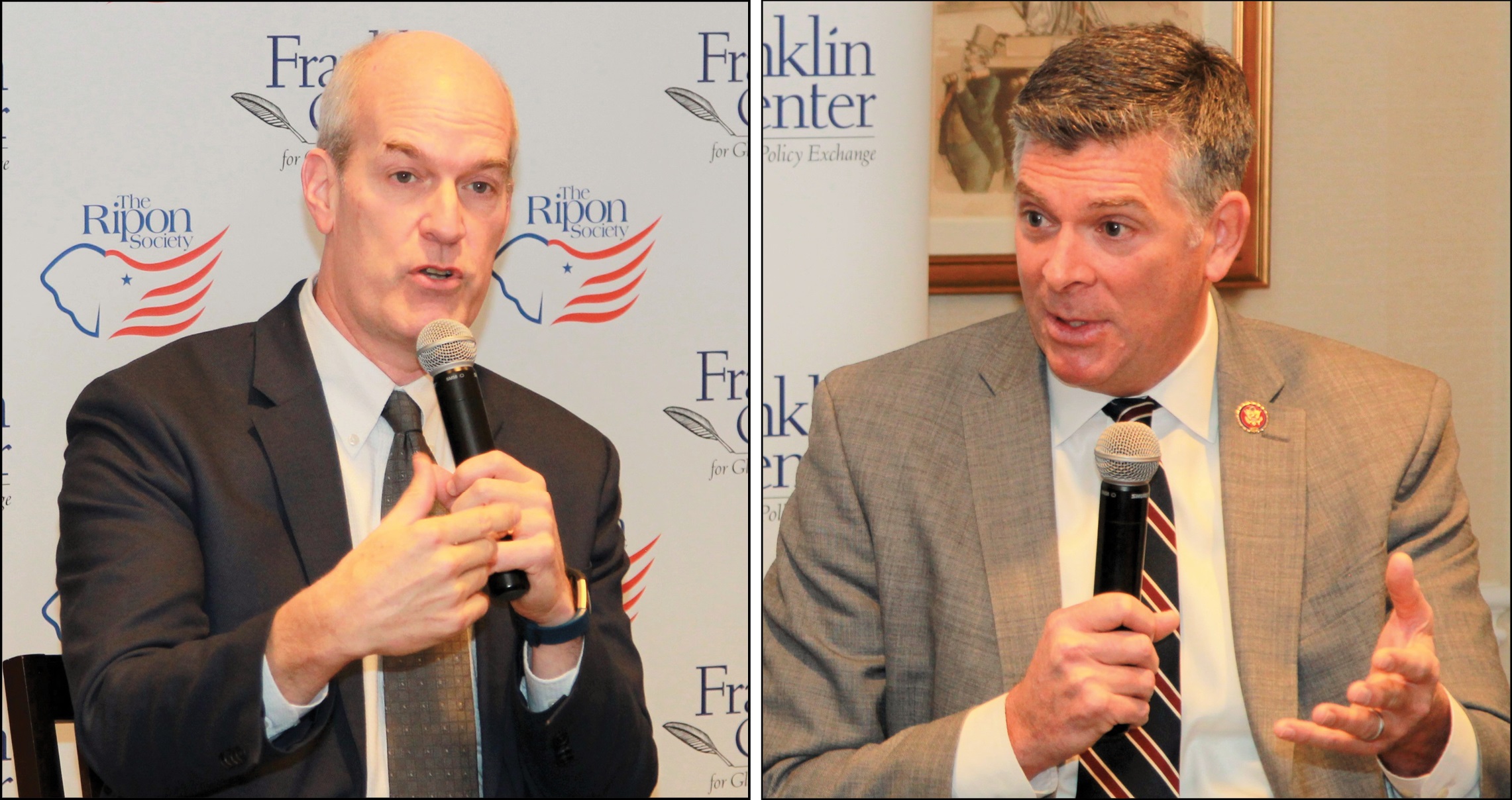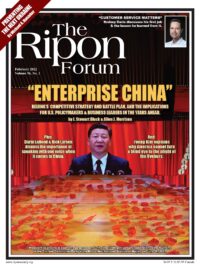
Addressing the unique challenges presented by China can and should be a bipartisan issue. As co-chairs of the bipartisan U.S.-China Working Group, we have worked together over several terms in Congress to elevate dialogue among Members and staff around the U.S.-China relationship. We have also both recently published detailed outlines of policies to compete with China and support American workers: the GOP Task Force Report and Rep. Larsen’s China White Paper. Though our proposals have similarities and differences, we agree that Congress must work in a bipartisan fashion to address the challenges presented by China
There are several lenses through which to view U.S.-China policy and how Congress can craft a pragmatic and proactive approach to ensure the United States has a leadership voice in the Indo-Pacific. From an economic and national security standpoint, China is a strategic competitor of the United States. For far too long, China has sought to skirt international rules and standards to gain a competitive advantage over the United States and our like-minded partners in the global economy.
For example, China is now the world’s second-largest economy, but it maintains “developing country” status with the World Trade Organization to retain preferential trade benefits intended to lift countries out of poverty. In addition, China continues to restrict market access, steal intellectual property, mandate joint ventures, and provide distortionary support to state-owned enterprises. Because these policies harm American workers and workers in other nations that compete with China, it is critical that U.S. policymakers develop responses that are targeted and coordinated with our world partners.
Now, more than ever, we must approach U.S. policy towards China in a bipartisan way.
China also poses a challenge to national security. As the People’s Liberation Army (PLA) modernizes and grows more capable, China has ramped up its pressure and assertiveness towards its neighbors, particularly India and Taiwan. China has also invested in shipbuilding, space operations, nuclear weapons and delivery systems, and emerging technology. Further, China’s Civil-Military fusion strategy and organization of a Strategic Support Force shows the PLA correctly understands the centrality of technology and information operations in any future military conflict with the United States. This challenge will require Congress to make prudent choices about posture, investments, and oversight. And, as with the economic challenge, the United States will be better positioned when coordinating and cooperating with like-minded partners.
Members will be better able to develop and evaluate policies to respond to these challenges with a common understanding of the history of the bilateral relationship. As co-chairs of the U.S.-China Working Group, we provide a forum for Members of Congress and staff to learn about this history and have frank discussions about U.S. policy with outside experts and each other. Over the years, we have led bipartisan delegation trips to China — meeting with Chinese leaders and discussing issues on the economy, trade, intellectual property, military, energy, and the environment. We’ve also traveled to Hong Kong to meet with American businesses, government officials, and protest leaders to discuss the importance of this unique relationship — particularly as China continues to further undermine freedom of speech, judicial independence, rule of law, and human rights.
As co-chairs of the bipartisan U.S.-China Working Group, we will ensure Congressional attention continues to focus on China’s manipulation of the global free market, threats against its neighbors and ongoing human rights abuses.
As the pandemic recovery continues, many challenges persist in the relationship between the United States and China, including China’s lack of transparency around the origins of COVID-19. Americans, our government, and our like-minded partners must also not turn a blind eye to forced labor and other human rights abuses being committed against the Uyghur population, a mostly Muslim ethnic group in the northwestern region of Xinjiang. The Chinese government’s crackdown in Hong Kong, through Beijing’s “national security law,” also raises concerns about the erosion of autonomy and the right to free expression. Beijing’s refusal to align with global human rights standards and export of technology that enables oppressive surveillance should be central to Congress’ approach to China.
There is no singular solution to the challenges that remain in the U.S.-China relationship. The challenges will require diligent and consistent bipartisan work to strengthen American competitiveness vis-à-vis China and globally and promote our values around the world. For example, compare our two reports – though there are real differences, we both support strengthening U.S. trade relationships, additional investments in funding for scientific research and developing language skills, and firm engagement on China’s growing defense posture and abuse of global economic standards. While we may not be able to expect unanimity on all issues, enhancing American competitiveness will require consensus in Congress and an open dialogue on charting a path forward.
As co-chairs of the bipartisan U.S.-China Working Group, we will ensure Congressional attention continues to focus on China’s manipulation of the global free market, threats against its neighbors and ongoing human rights abuses. We are committed to working as Members of Congress to keep an ongoing dialogue and forum for Members to learn and engage in policy that maintains U.S. leadership abroad, supports national security, and creates a level economic playing field based upon global rules and standards. Now, more than ever, we must approach U.S. policy towards China in a bipartisan way.
Darin LaHood, a Republican, represents the 18th District of Illinois in the U.S. House of Representatives. Rick Larsen, a Democrat, represents the 2nd District of Washington.




